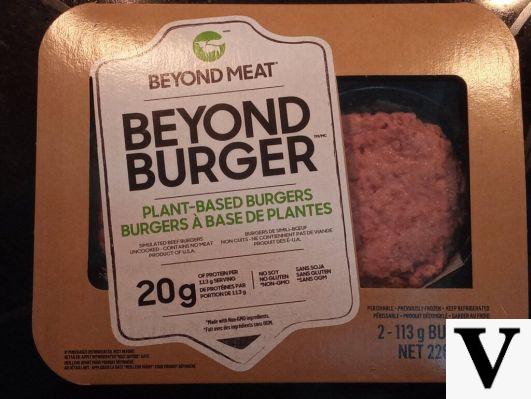
Il packaged vegan food is it healthier than the one made with animal derivatives? What does it really contain? These questions were answered by a survey of the monthly Il Salvagente which made use of the collaboration of Crea.
Many in your country have made the choice (ethical or healthy) to avoid animal food by becoming vegetarians or vegans. If you evaluate it from a health perspective, however: one thing is to eat healthy and fresh food, another to buy packaged vegan products, which come from an industrial type of processing.
To understand what they really contain, and how animal-like raw materials are replaced in these products, Il Salvagente has decided to compare the nutritional tables and the ingredient list of 12 products pre-packaged in veg or traditional version.
To better assess which ingredients and additives are hidden behind these products and the possible health consequences of their consumption, the help of Andrea Ghiselli, research manager of Crea and of Dario Vista, nutritionist and food technologist.
How animal proteins are replaced in vegan products
Animal proteins and fats, within industrial preparations, obviously have a function, which is not just one of taste. Vegan products therefore present the problem of having to replace these substances in some way. To do this, unfortunately, they use ingredients that are not always natural or otherwise healthy.
As explained by Dr. Vista, among the most used in place of animal fatsthere are:
- olive oil
- coconut oil
- rapeseed oil
- palm kernel oil
- various seed oils
- mono and diglycerides of fatty acids (E471)
As for animal proteins, these are generally replaced by soia o seitan (i.e. concentrated gluten). The egg in particular, then, has a function of binder that must always be replaced in some way. For this purpose, vegan products use: soy or sunflower lecithin, the aforementioned mono and diglycerides of fatty acids or magnesium salts.
To thicken, however, you can use tapioca or always E471 (which not surprisingly is often present in prepackaged products and not only in vegan ones).
The protein quantity of the products is then often reached using farine, fiber or pea protein which is increasingly found in vegan variants. This legume is preferred, at the expense of beans or other protein vegetables, for example, as it mixes and mixes very well.
Finally, a problem concerns the additional ingredients of which packaged products are often rich:
- thickeners
- dyes
- coagulanti
- aromas
Just turn the package, and read the very long lists of ingredients, to immediately understand how that food cannot be healthy at all (even if vegan).
Product analysis
Among the various products analyzed by the test, there are the vegan cheese slices (similar to slices), the grated cheese (obviously without milk) and the veg. cooking cream. In these options without animal derivatives, the experts point out, however, there are unhealthy ingredients such as coconut oil (too rich in saturated fat), palm kernel oil, dye E160 (beta-carotene) and many additives.
In vegetal burgers (which can no longer even be called that, according to the new rules established by the Agriculture Committee of the European Parliament), there is also often used as a thickener the methylcellulose, that is an artificial fiber.
The detail of the comparison between the 12 products is available in the new issue of Il lifesaver.
Read also:
- Is vegan food lighter and healthier? Not always
- It is forbidden to say hamburger, steak or cutlet for vegetarian products
- 25 things a vegan has heard of at least once in their life
healthiergang


























